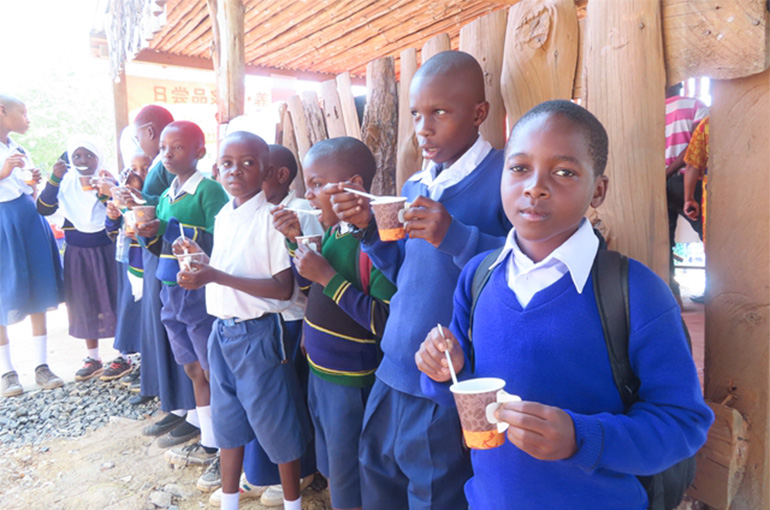 Chinese Professor Champions Soy Milk as New Way to Combat Poverty in Tanzania
Chinese Professor Champions Soy Milk as New Way to Combat Poverty in Tanzania(Yicai) Aug. 29 -- Soy milk has become popular with people in rural parts of Tanzania, despite originating thousands of kilometers away in China. The introduction of this traditional Chinese beverage in the East African country is the latest attempt by a Chinese professor to alleviate poverty there.
In Mtegowa Simba, a village located about 200 km from Tanzania's largest city, Dar Es Salaam, a retired electrical engineer, Omary Jayo, began selling soy milk last year with the help of China Agricultural University’s Li Xiaoyun and his team. Today, Jayo's breakfast shop sells more than 20 cups of soy milk a day.
When Jayo first started selling the milk, he priced it at TZS300 (11 US cents) per cup, which was TZS100 more than a cup of tea. After many villagers developed a taste for the drink, Jayo raised the price to TZS500, but sales have not fallen off.
Promoting the drink in Africa is a three-pronged approach to alleviating poverty, Li told Yicai. First, soy milk provides a cheap source of plant-based protein, which helps villagers to get a more balanced diet. Growing soybeans can also fix nitrogen in the soil, improving soil fertility, as well as extend the local agricultural value chain, promoting the formation of a circular economy.
Li and his team began their work to combat poverty in Tanzania in 2011. Their projects initially focused on increasing maize production, but that came with two main issues. First, the protein content of corn is too low to meet human nutritional needs, and second, villagers could not earn enough from growing the crop to afford meat and dairy products.
To address these issues, Li shifted focus in 2021 to promoting the planting of soybeans. He and his team not only taught local farmers the corn-soybean intercropping technique used in northern China, but also taught them processing methods for soybean-based products, such as soy milk.
Some aid workers also tried to bring in mechanized equipment to improve agricultural yields in Africa, but it proved unsuitable for local development, Li noted. Local farmers often cannot afford the energy and maintenance costs of such equipment, and African governments lack sufficient resources to build large-scale agricultural infrastructure, he said.
In the future, Li's team plans to launch a child nutrition welfare project in some Tanzanian villages, including Mtegowa Simba, to provide free soy milk to primary school kids while expanding soybean cultivation to create a public welfare system that combines agriculture and human nutrition.
Editors: Dou Shicong, Futura Costaglione